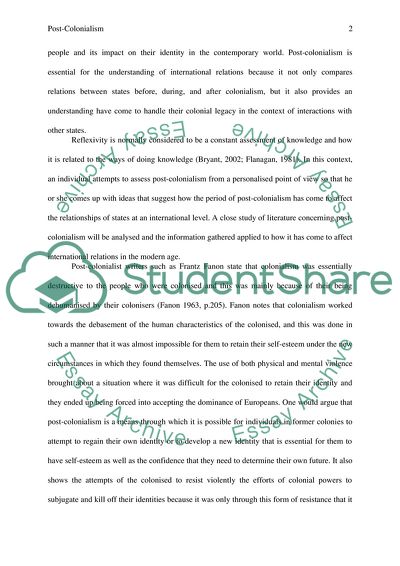Cite this document
(“What is post-colonialism, and , with a focus on reflexivity, what is Essay”, n.d.)
What is post-colonialism, and , with a focus on reflexivity, what is Essay. Retrieved from https://studentshare.org/social-science/1678524-what-is-post-colonialism-and-with-a-focus-on-reflexivity-what-is-its-significance-for-understanding-international-relations
What is post-colonialism, and , with a focus on reflexivity, what is Essay. Retrieved from https://studentshare.org/social-science/1678524-what-is-post-colonialism-and-with-a-focus-on-reflexivity-what-is-its-significance-for-understanding-international-relations
(What Is Post-Colonialism, and , With a Focus on Reflexivity, What Is Essay)
What Is Post-Colonialism, and , With a Focus on Reflexivity, What Is Essay. https://studentshare.org/social-science/1678524-what-is-post-colonialism-and-with-a-focus-on-reflexivity-what-is-its-significance-for-understanding-international-relations.
What Is Post-Colonialism, and , With a Focus on Reflexivity, What Is Essay. https://studentshare.org/social-science/1678524-what-is-post-colonialism-and-with-a-focus-on-reflexivity-what-is-its-significance-for-understanding-international-relations.
“What Is Post-Colonialism, and , With a Focus on Reflexivity, What Is Essay”, n.d. https://studentshare.org/social-science/1678524-what-is-post-colonialism-and-with-a-focus-on-reflexivity-what-is-its-significance-for-understanding-international-relations.


